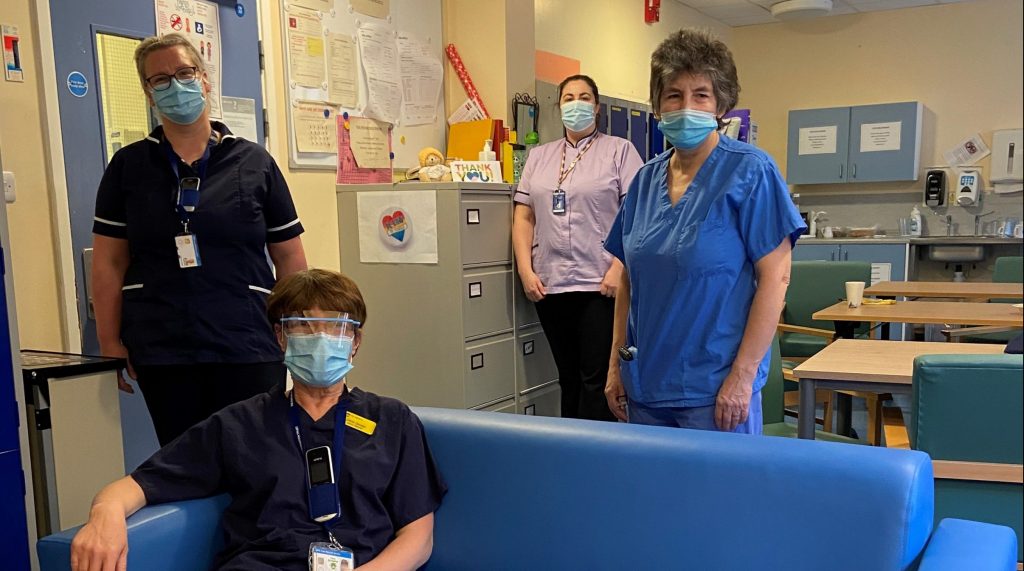A pilot project supported by Newcastle Hospitals Charity is carrying out research into fatigue at work and providing rest facilities.
The Charity, in collaboration with Newcastle upon Tyne Hospials NHS Foundation Trust, which is signed up to the national Fight Fatigue Campaign, secured funding for the project from the NHS Charities Together COVID-19 grant scheme.
National data shows that during a night shift a power nap at work improves vigilance, flexibility of thinking, teamwork and mood and increases empathy with patients, whilst reducing mistakes such as drug errors.
Dr Nancy Redfern, Consultant Anaesthetist in Peri-operative and Critical Care at the Royal Victoria Infirmary (RVI) is co-chair of the Joint National Fatigue Working Group and is leading the pilot project which is focuses on teams in the hospital’s labour ward. The labour ward was chosen for the project as the Royal College of Midwives are backers of the #fightfatigue campaign, which aims to improve understanding and management of fatigue amongst healthcare staff.
The research has been carried out by an academic research professor at Northumbria University, Prof Alison Steven, whose team has conducted interviews and focus groups with 40 staff from the labour ward, and supported them to co-design their own fatigue risk management strategy. The Charity has funded sofas for staff to take a break during their night shifts.
Alongside the qualitative interviews and focus groups, the project also funded Fit Bits for staff, connected to a mobile phone app to monitor their activity using a traffic light system to indicate when the user needed to take a rest. The project found that the users were more likely to take a rest when the app indicated they needed this.
The project is helping to change the culture in the labour ward to one where staff recognise the impact of tiredness on their own and their colleagues’ performance, and prioritise breaks and power naps so that patient care is safer and staff feel better. Instead of fatigue being regarded as an occupational hazard it is now recognised as a potential safety problem, one which can be addressed by working together as a multi-professional team. Midwives now self-roster so they can choose night shift working patterns that better suit their own sleep patterns, doctors are aware of the potential risk of operating when tired, and the ward is to trial having fatigue on the risk register. The team is working with the Sleep for Safety group and the Guardian of Safe working hours and hopes to work with departments in other parts of the Trust interested in developing their own fatigue risk management strategy

Dr Redfern, said: “The aim is to support colleagues to learn the basics of sleep physiology and to provide them with the rest facilities they need to look after themselves during night shifts. Whilst we know there are different pressures across specialities, thanks to the project we have a methodology to support our colleagues across the Trust with fatigue at work.”
Fatigue affects everyone who works nights, and the Trust is planning to do more work, empowering teams to develop their own ways of managing night shift fatigue.
